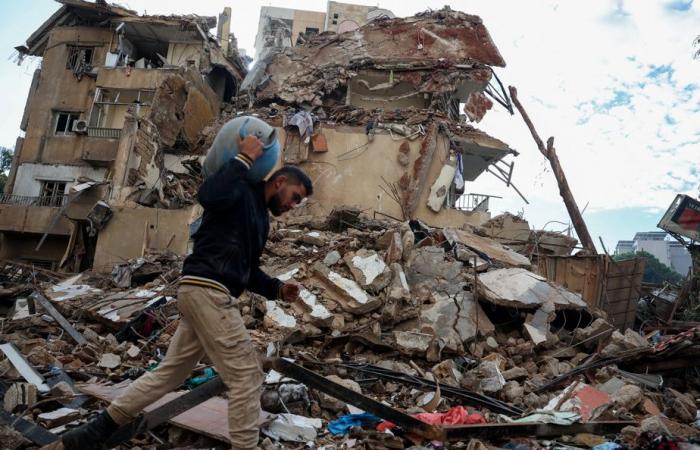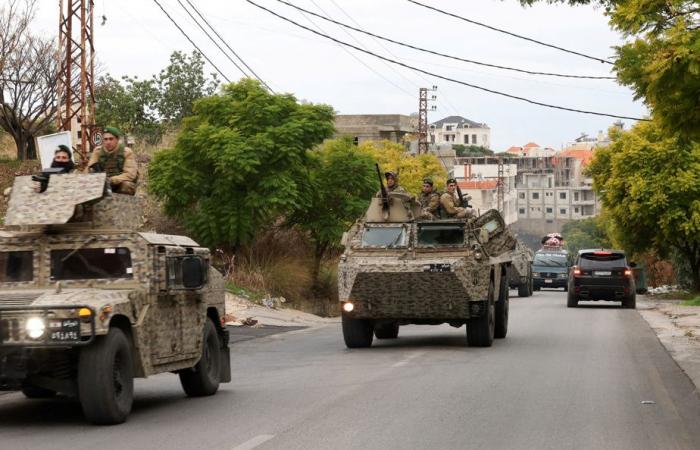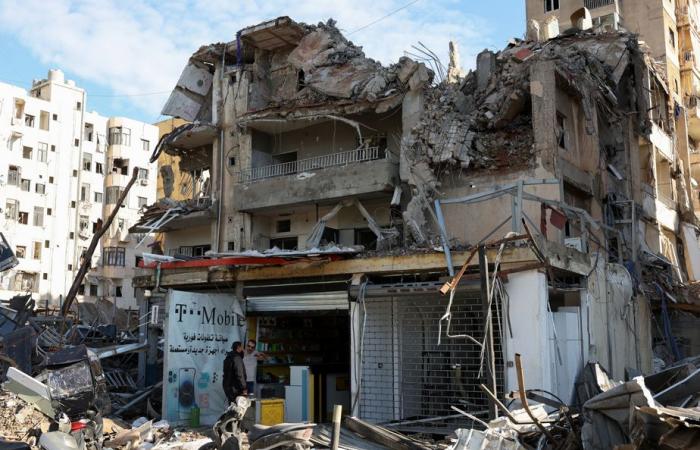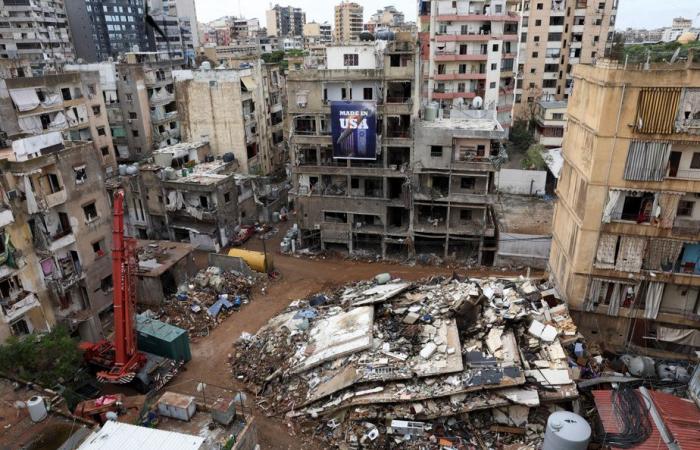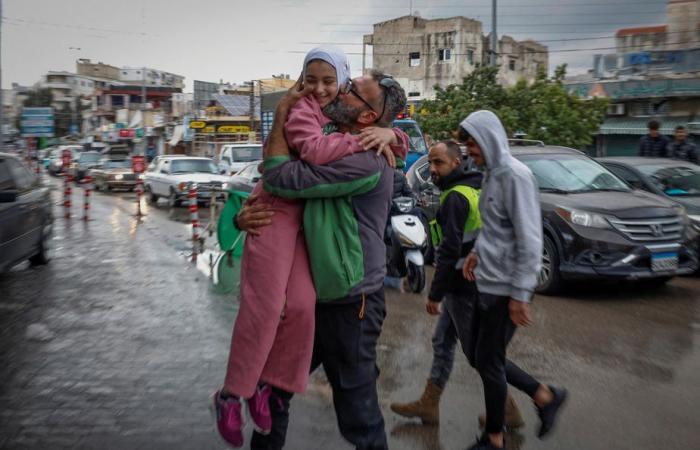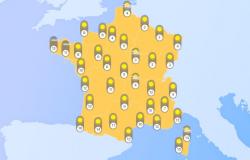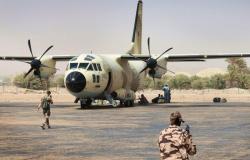(Beirut) Israeli Prime Minister Benjamin Netanyahu threatened Thursday with an “intensive war” in the event of violation of the truce with Hezbollah in Lebanon, which came into force the day before and has already been put to the test.
Posted at 6:27 a.m.
Updated at 3:15 p.m.
Aya ISKANDARANI with Anne-Sophie LABADIE in Jerusalem
Agence France-Presse
The Israeli army announced a few hours earlier that it had carried out an airstrike against a Hezbollah installation in southern Lebanon, the first since the start of the truce that ended the war with the armed movement allied with Iran. .
As soon as the ceasefire took effect at dawn on Wednesday, tens of thousands of displaced residents rushed to return to their homes in southern and eastern Lebanon as well as the southern suburbs of Beirut, Hezbollah strongholds, where they discovered immense destruction.
The Lebanese army, which began deploying troops and armor in the south of the country, accused Israel on Thursday of having violated the ceasefire agreement “on several occasions”.
“If necessary, I have instructed” the army to carry out, “in the event of a violation of the ceasefire, an intensive war,” Mr. Netanyahu declared in an interview with the Israeli media Channel 14.
PHOTO MOHAMED AZAKIR, REUTERS
A man walks among rubble in the suburbs of Beirut, Lebanon, November 28, 2024.
The Israeli army announced that it had imposed a curfew between 5 p.m. Thursday and 7 a.m. Friday in southern Lebanon, bordering northern Israel, after “opening fire” in the direction of “suspects […] not respecting the conditions of the ceasefire.
On Thursday, a fighter plane targeted “a forest area not accessible to civilians” in the town of Baïssariyé, Nazih Eid, the mayor of this Lebanese locality, told AFP.
The Israeli army said it had identified a facility used by Hezbollah “to store medium-range rockets in southern Lebanon” and had “thwarted the threat” with an airstrike.
She added that her forces “remained in southern Lebanon and acted to enforce” the truce.
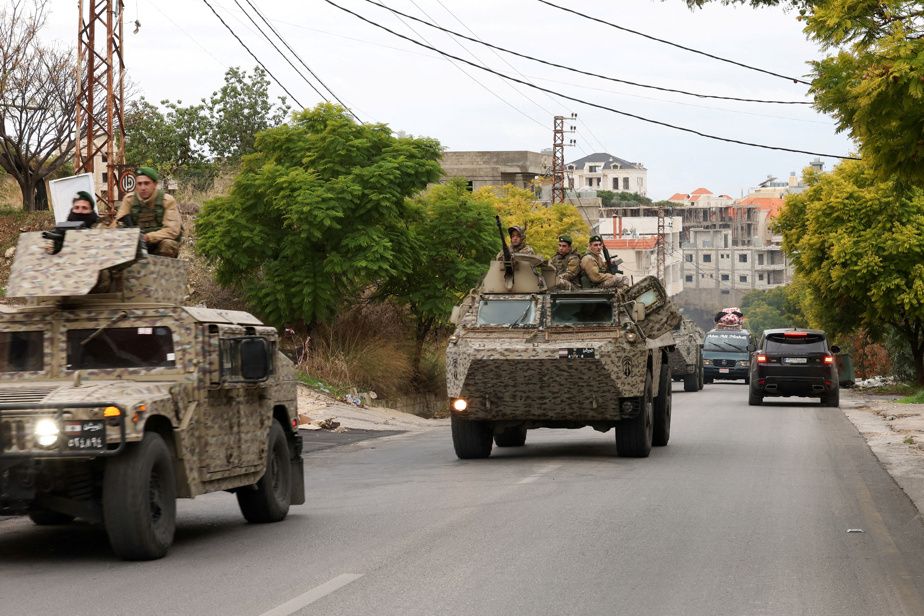
PHOTO AZIZ TAHER, ARCHIVES REUTERS
The Lebanese army in southern Lebanon, November 27, 2024.
Israeli fire also injured two people in the village of Markaba, in southern Lebanon, according to the Lebanese news agency Ani.
Meanwhile, the Lebanese army continues its deployment in the south of the country where it is “installing checkpoints”, a military source told AFP on Thursday, specifying that the soldiers are not “advancing into areas where the Israeli army is still there.
In the Christian village of Qlaaya, Lebanese soldiers were greeted Wednesday evening by jubilant residents who threw them flowers and rice.
Parliament on Thursday extended by one year the mandate of army commander-in-chief Joseph Aoun, who was due to retire in January.
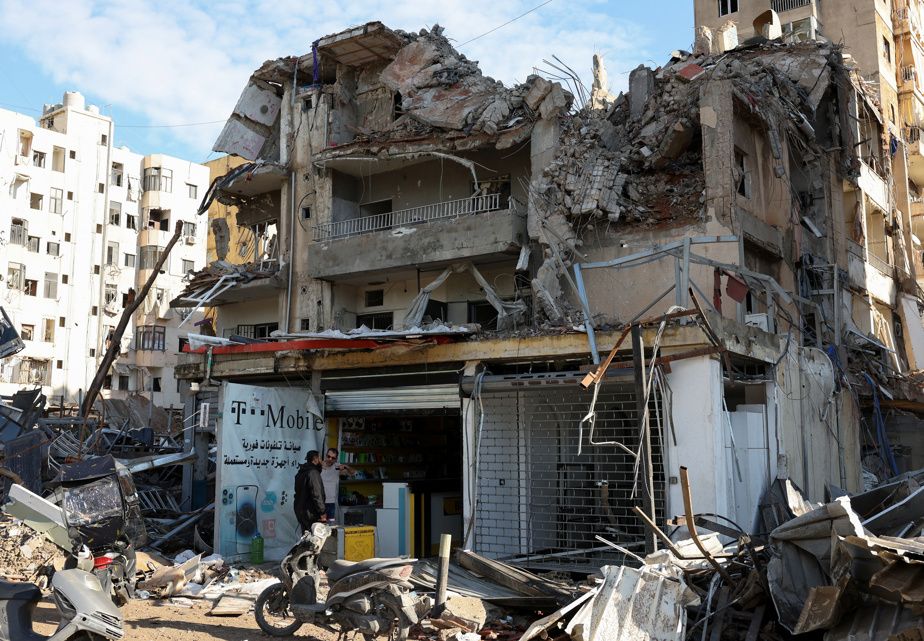
PHOTO MOHAMED AZAKIR, REUTERS
People stand amid the damage on the second day of the ceasefire between Israel and Hezbollah.
“Ready to face” Israel
The ceasefire agreement aims to end the deadly conflict that began in October 2023 between Israel and Hezbollah, which has displaced 900,000 people in Lebanon and 60,000 in northern Israel.
Hezbollah opened a “support” front for Hamas against Israel at the start of the war in the Gaza Strip, triggered on October 7, 2023 by the unprecedented attack by the Palestinian Islamist movement.
After months of exchanges of fire on both sides of the Israeli-Lebanese border, Israel launched a massive bombing campaign on the strongholds of the Lebanese movement on September 23, followed by ground operations in southern Lebanon, claiming to want to secure its northern border and allow the return of displaced people.
According to Lebanese authorities, at least 3,961 people have been killed since October 2023, most since the end of September. On the Israeli side, 82 soldiers and 47 civilians died in 13 months, according to the authorities.
Sponsored by the United States and France, the ceasefire agreement provides for the withdrawal within 60 days of the Israeli army from Lebanon.
Hezbollah must retreat to the north of the Litani River, about 30 kilometers from the border, and dismantle its military infrastructure in southern Lebanon.
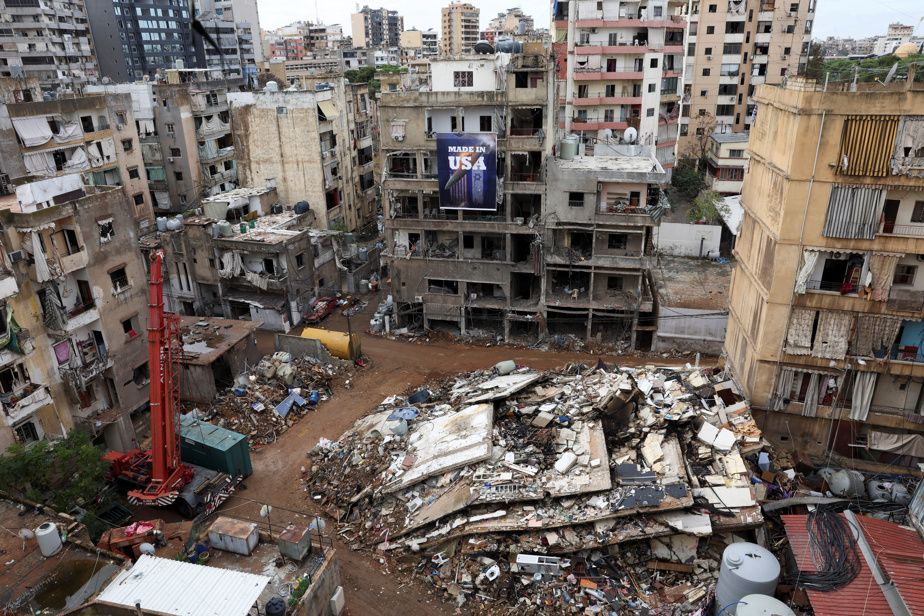
PHOTO MOHAMED AZAKIR, REUTERS
A “made in USA” banner hangs on a building destroyed by Israeli strikes, in Lebanon.
These provisions are based on UN Security Council Resolution 1701 which ended the previous war between Israel and Hezbollah in 2006.
Israel said it reserves “complete freedom of military action” in Lebanon, “if Hezbollah violates the agreement and attempts to rearm”.
Hezbollah proclaimed its “victory” on Wednesday, saying its fighters “will remain fully ready to face […] to attacks by the Israeli enemy.
Although decapitated by Israeli strikes, the Shiite movement remains a key player in Lebanon. It could thus unblock the election of a president of which the country has been deprived for more than two years due to political rivalries.
Parliament is due to meet on January 9 for this election, according to Ani.
“Reality is harsher”
Residents of the south continued Thursday in an incessant flow to return to their devastated towns and villages.
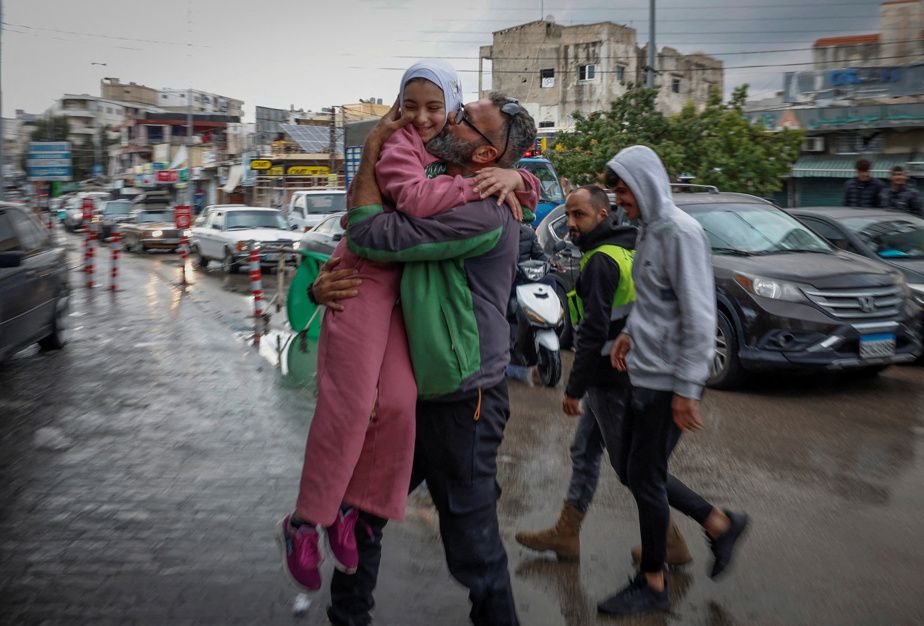
PHOTO ADNAN ABIDI, ARCHIVES REUTERS
A family hugs in Tyre, after the start of the ceasefire, on November 27, 2024.
In the port city of Tyre, whose ancient sites are listed as UNESCO World Heritage Sites, the destruction of vital infrastructure is making some neighborhoods uninhabitable.
“There is no longer any water or electricity, even the private generators no longer work, the cables have been cut,” says Sleiman Najdé, a 60-year-old man who returned to the family apartment with its doors and windows torn off.
“I didn’t expect such damage. We had seen the images, but the reality is harsher,” confides Dounia Najdé, her 33-year-old daughter-in-law.
In the southern suburbs of Beirut, Ali Mohammad Abbas came to pay his respects at his brother’s grave, in a cemetery devastated by Israeli bombs. “I was waiting for the ceasefire,” said this resident of the Bekaa, in the east, who was unable to come to the funeral “because the roads were not safe.”
A little further away, Ahmad Aki Mansour is delighted with the resumption of business in his itinerant vegetable business. Especially since we will have to rebuild: “the houses of my three sons have been destroyed,” he says.

